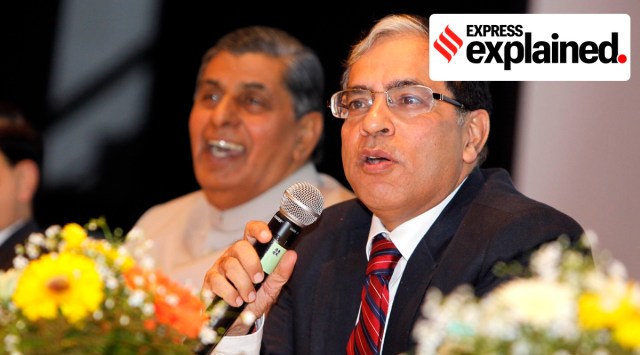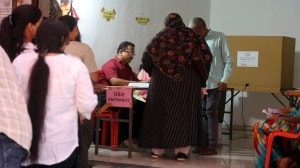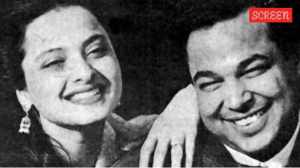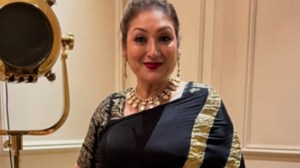The News Broadcasting & Digital Standards Authority (NBDSA), a self-regulatory agency set up by news and digital broadcasters, has fined the Hindi TV channel News18 India Rs 50,000 for turning a news debate on hijab into a “communal issue” and not adhering to guidelines. The NBDSA held that the programme was in violation of the principles relating to impartiality, neutrality, fairness and good taste and decency.
The NBDSA, which adjudicates upon complaints about news broadcasts, said it did not have any problem with the subject but with the narrative of the debate. In its order, the NBDSA noted that it was permissible for the broadcaster to have a debate on students wearing hijab in educational institutions.

This is not the first time a channel has seen a complaint against it through the NBDSA, and though it is not a government or legal organisation, its rulings matter within the industry.
What is the News Broadcasting & Digital Standards Authority (NBDSA)?
The NBDSA is an independent body set up by the News Broadcasters & Digital Association (NBDA), which serves as a representative of private television news, current affairs and digital broadcasters. It describes itself as “the collective voice of the news, current affairs and digital broadcasters in India.”
Funded entirely by its members, the NBDA has 26 news and current affairs broadcasters (comprising 119 news and current affairs channels) as its members. Various senior members of Indian media organisations serve on its Board of Directors.
Apart from presenting a unified front, it carries out activities “to promote, protect and secure the interests including the right of freedom of speech and expression of the news broadcasters, digital news media and other related entities.”
Story continues below this ad
It shares developments in the industry with members, provides a space for achieving common goals and consensus and aims to protect all its members from persons carrying “unfair and/or unethical practices or who discredit the television news broadcasters, digital news media and other related entities,” according to its stated objectives.
How does the NBDSA function, and what powers does it have?
Within this structure, the NBDSA has to “lay-down and foster high standards, ethics and practices in news broadcasting, including entertaining and deciding complaints against or in respect of broadcasters”. These standards mention a focus on objectivity, impartiality, maintaining discretion when reporting on crime against women and children, not endangering national security, etc.
The body includes a Chairperson who is to be an eminent jurist, and other members such as news editors, and those experienced in the field of law, education, literature, public administration, etc. nominated by a majority of the Board. Former Supreme Court judge and jurist AK Sikri is currently serving as the Chairperson.
Story continues below this ad
The Authority may initiate proceedings on its own and issue notice or take action in respect to any matter which falls within its regulations. This can also be through complaints referred to the Authority by the Ministry of Information & Broadcasting or any other governmental body, or by anyone else via its website
A “two-tier” procedure is in place for redressing grievances, where any person aggrieved by the content of any broadcast is required to first make a complaint to the concerned broadcaster and if they are not satisfied by the redress, a complaint can be filed before the Authority.
Those cases which have already been taken to court cannot be complained against. Within 14 days from the date of receipt of a complaint, the Authority will issue notice to the concerned broadcaster to show cause why action should not be taken under the regulations. An inquiry is held in which proof, documents, and people can be called in by the authority. If the complainant or the respondent does not get back to the Authority, the complaint can be set aside.
The NBDSA may, for reasons to be recorded in writing, warn, censure, express disapproval against and/or impose a fine upon the broadcaster. It can also recommend to the concerned authority for suspension/revocation of the license of such broadcaster. The fine imposed by the Authority shall not exceed Rs. 1 lakh and such fine shall be recovered from the concerned broadcaster.
What complaints have been made to the NBDSA?
Story continues below this ad
The list of complaints and the decisions taken are available on the website, and not all see action taken against them. For example, one complaint related to an NDTV broadcast in February was filed this year, on a show that allegedly made “absurd, mischievous and malafide comments” over a government scheme to provide free foodgrains. The authority found the content of the broadcast fell within the realm of editorial discretion and there was no violation of its Code of Ethics & Broadcasting Standards, so the complaint was closed.
Another complaint was over a show on Zee channel, where an anchor discussed the criticism against the movie The Kashmir Files. The complainant claimed, “Clear attempts were made in the programme to unduly influence the sentiments of viewers against a specific community whom the anchor repeatedly claimed do not want the truth of the Kashmiri pandits to come out.” On viewing the footage, NBDSA found no specific violation of the Code of Ethics and Broadcasting Standards or Guidelines in the broadcast, and so no action was called for on the complaint.








































